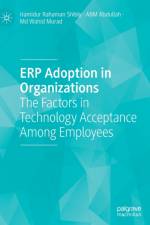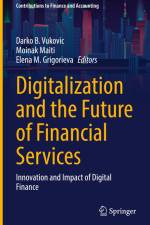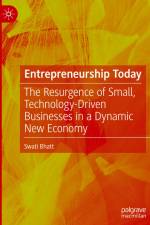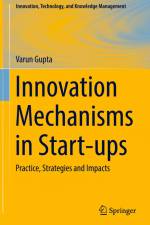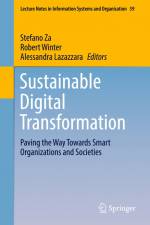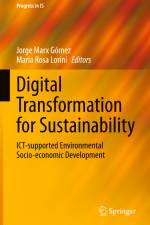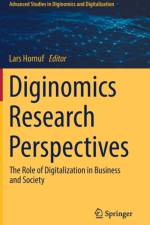av Bruce Garvey
665
This book argues that uncertainty is not really uncertainty at all but just demonstrates a lack of vision and willingness to think about the unthinkable - good and bad. The task of accepting that uncertainty is about exploring the possible, rather than the impossible has to be taken on board by strategists, policy developers, and political leaders, if we are to meet the challenges that an ever changing world is throwing at us. The term "e;unknown - unknowns"e; is ubiquitous, albeit the vast majority of future uncertain events do not fall into this category. However, it has been used to absolve decision makers from criticism post-event, whereas poor foresight is the prime culprit and that most future uncertainties are "e;known-unknowns"e; or "e;inevitable surprises"e;. This re-positioning of uncertainties can help mitigate the impact of such risks through better foresight aware contingency planning. The enemy is not uncertainty itself but our lack of imagination when trying to visualize the future - we need to transform our behaviour. To better understand uncertainty we have to deconstruct it and get to grips with its component parts. Three main questions are posed and practical approaches presented: What are the main structural components that make up the conditions under which uncertainty operates? What scenario lenses can be used when exploring uncertainty? What behavioural factors do we need to consider when analysing the human responses to uncertainty? Practitioners, having to deal with making better decisions under uncertainty, will find the book a useful guide.Endorsements for the book:"e;With this book, Bruce Garvey performs a great service for consultants, planners and, indeed, anyone whose job involves a degree of speculation about what will happen in the future. Through a comprehensive survey of methods, tools and techniques, he provides a practical guide to unpacking the uncertainty that besets all human endeavour. This is no dry academic treatise: it deals with highly contemporary topics such as "e;fake news"e; - part of a fascinating dissection of "e;dark data"e; - and how our biases and preconceptions shape our views. The book finishes with three case studies dealing with the Covid-19 pandemic, social mobility and inequality, and achieving net zero - all topics that are sorely in need of the critical thinking and analysis skills described previously.No one can completely eliminate "e;20:20 hindsight"e; from all business decisions but readers applying the lessons of this book may find themselves saying "e;if only we'd known less frequently."e;-- Nick Bush, Director - CMCE (Centre for Management Consulting Excellence)"e;Academic literature and practical guides to uncertainty management are disparate: this exciting edition brings it all together. Principal author, Bruce Garvey, recognises the erroneous attribution of many recent events to unforeseeable uncertainty ('unknown unknowns'), calling these out as inevitable surprises (or 'unknown knowns'), a category of uncertainty that is typically overlooked. Garvey describes critical dimensions of uncertainty, before examining scenarios and behavioural aspects, the latter being a 'hidden influencer' which is too often neglected. The guidebook contains a variety of methods, tools and techniques, including several that deserve more use, and contains a detailed glossary and reference list. Practical advice covers topics such as identifying weak signals for use in scenario development and overcoming cognitive dissonance. This well-structured and engagingly written guide should serve as a standard text for students, academics and practitioners across policy making, business, and industry."e;-- Dr. Geoff Darch, Water Resources Strategy Manager, Anglian Water. Co-Founder, Analysis under Uncertainty for Decision-Makers (AU4DM) Network"e;This is a valuable companion volume to John Kay and Mervyn King's Radical Uncertainty - and it is a necessary corrective to the physics envy of disciplines such as economics which achieve a false sense of certainty by creating highly plausible but unreliable simplifications of things through over generalisation - leading to simplistic proposals for interventions which can only rightly be judged through a lens of complexity and probability.I would like to be more optimistic about the ultimate effects of books of this kind - and in some fields, perhaps in military decision-making and defence I am quite optimistic. In such fields, people tend to approach decision-making through the assumption that things will go wrong, and that the effects of any mistakes will be very keenly, perhaps fatally experienced.In business and softer social policy-making, I fear the battle will be much harder. In such fields as politics and business, it is often better for the reputation "e;as Keynes remarked, "e;to fail conventionally than to succeed unconventionally."e; In such fields, it is more important to make defensible decisions than to make good decisions, so an artificial sense of logical certainty will perhaps always hold an unhealthy appeal.But here's hoping anyway!"e;-- Rory Sutherland, Vice Chairman, Ogilvy Group"e;Here is a most insightful book, which holistically examines the 'world of uncertainty', particularly as it impacts sense- to decision-making processes for many different stakeholders. Both scholars and practitioners, strategists to operators, soon gain from reading.Journeying from theory to practice, we embark on a comprehensive definition of uncertainty to subsequently become better equipped for its greater contemporary navigation when going forward, all elucidated by several well-structured scenarios and case-study examples. How uncertainty relates to risk (both qualitative and quantitative) is systematically charted, articulating their close interactivity.Forming a successful guide, this book has much enduring reference value and is therefore deserving of being readily retrievable as events and developments benefit from their improved understanding. Uncertainty can demonstrably be negotiated much more effectively. Alternative situations and conditions of denial, lamented as 'we should have (fore)seen that', no longer stand as acceptable when it comes to anticipating futures ahead. With this book, further help is now at hand."e;-- Adam D.M. Svendsen, PhD, International Intelligence & Defence Strategist, Researcher, Analyst, Educator & Consultant

